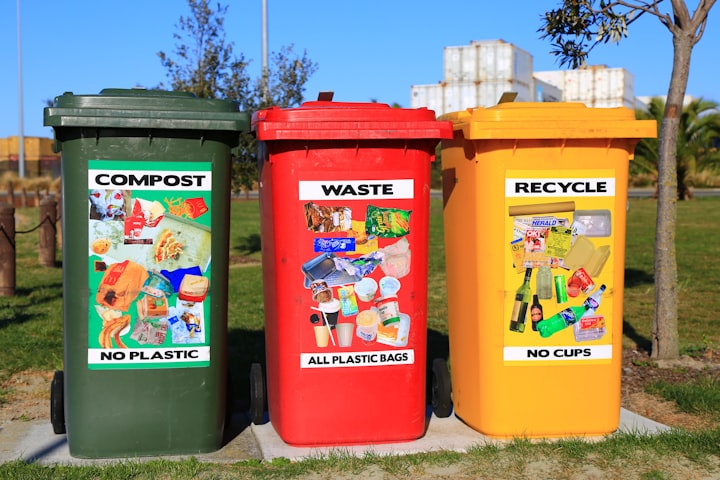Beyond the Jar: Reflecting on the Legacy of the Zero Waste Movement
Navigating Sustainability, Challenges, and Collective Action in an Evolving Environmental Landscape

The zero waste movement emerged on the internet during the mid-2010s, presenting a novel approach to environmental conservation through a surge of blogs and YouTube videos. Spearheaded by influencers like Lauren Singer with her iconic mason jar of trash, the movement gained traction, shifting the online discourse on environmentalism. However, a decade later, questions arise: what impact has it truly had?
Initially championed by Singer's blog "Trash is for Tossers," the movement burgeoned with numerous followers, including myself. At the time, my minimalist lifestyle naturally aligned with zero waste principles, leading me to embrace the trend. Yet, the allure of significant viewership also influenced my involvement. Zero waste principles permeated various aspects of life, from grocery hauls to weddings, epitomizing a holistic approach to sustainability.
The movement aimed to empower individuals to reduce waste through mindful consumption and habit changes. It fostered awareness about excessive packaging and normalized wasteful practices. However, as it gained momentum, criticisms emerged. The prescribed zero waste lifestyle appeared attainable only for certain demographics, overlooking the challenges faced by others.
While some swaps, such as reusable cups and safety razors, were feasible and beneficial, others proved impractical or inaccessible. Bamboo cutlery and steel straws often fell short, and eco-friendly alternatives came at a cost. Moreover, the movement inadvertently fostered a culture of guilt, alienating those unable to fully adhere to its principles.
The turning point came with the revelation of recycling's shortcomings and the inundation of disposable plastics amid the pandemic. The disillusionment prompted by recycling realities and global crises led many to question the efficacy of individual actions. The movement's decline mirrored a broader societal shift towards skepticism and nihilism regarding environmental efforts.
Yet, amidst the disillusionment, a deeper understanding emerged. The focus shifted from individual actions to systemic flaws perpetuated by corporations and capitalism. The realization that consumer choices are entangled with complex supply chains and environmental repercussions spurred a new narrative.
The legacy of the zero waste movement lies not in its ability to sustain a trend but in its contribution to environmental consciousness. It inspired critical thinking, challenged norms, and paved the way for broader conversations on sustainability. While its heyday may have passed, its lessons endure, urging us to advocate for systemic change and embrace kindness in our pursuit of a better world.
In the wake of the zero waste movement's evolution, a new narrative emerged—one that delved deeper into the intricacies of consumerism, environmental impact, and corporate responsibility. This shift in focus prompted introspection and prompted a reevaluation of individual actions within the broader context of systemic change.
As someone who transitioned from zero waste content creation, I embarked on a journey of exploration, seeking to understand the multifaceted dynamics shaping our consumption patterns. Through research and introspection, I uncovered the intricate web of choices we make and their far-reaching consequences.
The realization dawned that simplistic solutions often fall short in addressing complex issues. While reducing personal waste remains crucial, it is but one piece of the puzzle. True progress necessitates systemic transformations, challenging entrenched structures and advocating for sustainable practices at every level.
The transition from zero waste to a more nuanced understanding of environmentalism underscored the importance of collective action. It highlighted the need for solidarity and empathy in navigating the complexities of sustainability. Rather than succumbing to disillusionment, it inspired resilience and determination in the face of daunting challenges.
Today, my advocacy extends beyond individual lifestyle changes to encompass broader systemic reforms. I strive to amplify voices calling for corporate accountability, policy reform, and equitable access to sustainable alternatives. Through collaboration and community-building, we endeavor to effect meaningful change and shape a more sustainable future for generations to come.
In retrospect, the zero waste movement served as a catalyst for introspection and enlightenment, laying the groundwork for a more nuanced approach to environmentalism. While its prominence may have waned, its legacy endures in the collective consciousness, fueling ongoing efforts to confront the ecological crises of our time with courage, compassion, and conviction.
About the Creator
Sebastian Clarke
Posting some of my previous work! Then writing some new ones!





Comments
There are no comments for this story
Be the first to respond and start the conversation.